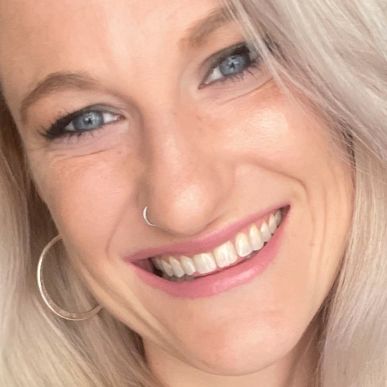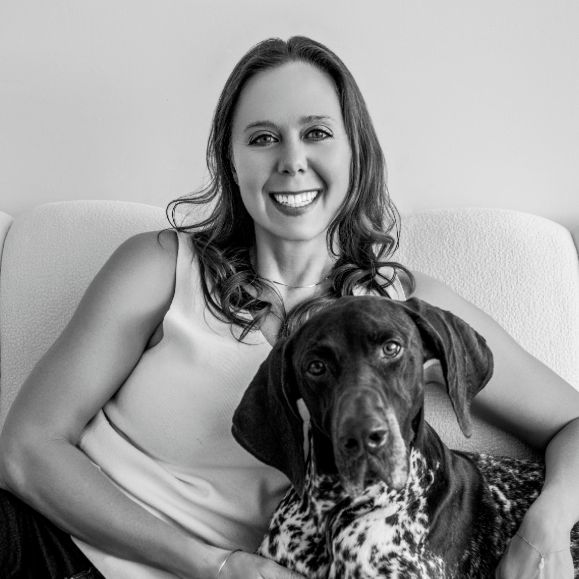What Is Experiential Therapy?
Experiential therapy is a dynamic, action-oriented form of psychotherapy that focuses on real-time emotional experience rather than just verbal processing. It’s an umbrella term for therapeutic approaches that help people engage their emotions through body movement, creativity, and interaction, rather than relying solely on talking and analyzing.
Unlike traditional therapy, which may focus on gaining insight through conversation, experiential therapy taps into the body and senses to uncover feelings that live beneath the surface. It’s especially useful for processing trauma, emotional blockages, unresolved grief, or relational struggles — the kinds of issues that often defy logic or explanation.
Because emotions are stored not just in the mind but also in the body, experiential methods can help access those emotional layers that are difficult to reach through words alone.
What Techniques Are Used in Experiential Therapy?
Experiential therapy includes a wide range of creative and body-centered techniques designed to activate emotional awareness and healing. Some commonly used methods include:
- Role-play & psychodrama – Act out internal or relational conflicts to bring unconscious dynamics to light.
- Gestalt empty-chair work – Engage in dialogue with different parts of yourself or others, deepening emotional processing.
- Somatic/body-centered techniques – Focus on physical sensations to uncover and release stored trauma.
- Art therapy – Use drawing, painting, or sculpting to express emotions that are hard to verbalize.
- Music or movement therapy – Tap into rhythm and body expression to bypass cognitive defenses.
- Mindfulness and guided imagery – Access calm or inner clarity through visualization and present-moment awareness.
- Equine-assisted therapy – Engage with horses to reflect relational dynamics and build emotional regulation.
- Adventure or outdoor therapy – Challenge yourself in natural settings to promote growth and insight.
- Family sculpting and enactment exercises – Recreate family dynamics using spatial and physical representation to better understand patterns.
Each session is unique — the techniques used are chosen based on your needs and comfort level, with a focus on unlocking what’s stuck beneath the surface.
Who Can Benefit from Experiential Therapy?
Experiential therapy is especially helpful for people who feel like they’ve hit a wall in talk therapy or who struggle with emotion-based challenges. It’s well-suited for:
- Trauma survivors, including those with complex PTSD or developmental trauma.
- Individuals who intellectualize their emotions and struggle to connect with what they feel.
- Couples facing emotional disconnect or communication breakdowns.
- People dealing with unresolved grief that won’t move despite insight.
- Those experiencing emotional numbness or dissociation.
- Teens and young adults resistant to traditional therapy formats.
- Clients facing anxiety, depression, or shame rooted in early life experiences.
- Individuals in addiction recovery needing emotional connection and embodiment.
Experiential therapy doesn’t just help you talk about your story — it helps you feel and transform it.
When Should I Consider Experiential Therapy?
You might want to explore experiential counseling if:
- You’ve been in talk therapy but feel stuck or stalled.
- You struggle to access or stay with your emotions during sessions.
- Your trauma feels “in your body” more than “in your head.”
- You’ve gained insight but aren’t seeing emotional or behavioral change.
- You frequently disconnect, avoid, or self-sabotage in therapy or relationships.
When words aren’t enough, experiential psychotherapy offers another route — one that engages your full self, not just your intellect.
What Happens in an Experiential Therapy Session?
Every session is different, but most begin with a check-in or discussion around what feels stuck or emotionally difficult. From there, the therapist may guide you through a creative or movement-based process to help you explore deeper emotional layers.
A typical session might include:
- Assessing emotional blocks and identifying target experiences.
- Guided exercises such as visualization, movement, role-play, or somatic tracking.
- Safe emotional exploration, with the therapist attuning to your pace and comfort.
- Creative methods like art, music, or props to bypass defenses and encourage expression.
- Moment-to-moment adjustment, with the therapist tailoring the session based on what emerges.
Unlike traditional therapy, you might find yourself standing, moving, or physically engaging with the process. That’s because experiential therapy doesn’t just involve your mind — it involves your whole being.
How Is Experiential Therapy Different From Talk Therapy?
Talk therapy often focuses on helping you understand your past or current struggles through insight and reflection. While powerful, this can sometimes fall short for people who need to feel their emotions in the body to truly process them.
Experiential psychotherapy is different in a few key ways:
- It engages the emotional brain and body memory, not just cognitive insight.
- It bypasses defenses that often block traditional therapy from reaching deeper layers.
- It can be faster and more transformative for clients who are open to emotionally immersive work.
- It offers real-time experience — not just analysis — of what’s happening inside you.
By activating body-based emotional memory, experiential therapy helps you process emotions that talking alone may never reach.
What Types of Experiential Therapists Are There?
The field of experiential therapy includes many types of practitioners, each with specialized training. Some examples include:
- Licensed therapists with training in experiential counseling techniques.
- Somatic experiencing practitioners, who focus on trauma stored in the body.
- Psychodrama facilitators, who use theatrical methods to explore emotional patterns.
- Art and expressive arts therapists, blending creativity and psychology.
- EMDR therapists, many of whom incorporate experiential elements like body awareness and visualization.
- Adventure therapists, especially for teens and young adults.
- Trauma-informed experiential therapists with an emphasis on emotional regulation and safety.
Finding the right experiential therapist depends on your needs, goals, and comfort level with the techniques used.
Can Experiential Therapy Be Done Online?
Yes — while some experiential methods work better in person, others adapt surprisingly well to virtual formats. For example:
- Guided imagery, somatic awareness, and art therapy translate well to telehealth.
- Movement and enactment-based work may feel more effective in a shared physical space.
- Hybrid models are emerging, allowing you to combine in-person depth work with online convenience.
Many therapists offer remote experiential counseling sessions that still deliver powerful emotional breakthroughs.
Is Experiential Therapy Evidence-Based?
Though not as extensively researched as cognitive-behavioral therapy (CBT), a growing body of research supports the effectiveness of experiential psychotherapy, especially in areas such as:
- Trauma treatment
- Emotional processing and expression
- Grief and bereavement
- Body-mind integration
Experiential methods are often integrated into trauma-informed treatment plans and used alongside evidence-based models like EMDR, IFS (Internal Family Systems), or DBT. In practice, many therapists blend experiential work into comprehensive healing approaches.
Is Experiential Therapy Right for Me?
Experiential therapy may be a good fit if you:
- Feel emotionally stuck, disconnected, or numb.
- Want to move beyond talking and into full emotional processing.
- Have trauma or grief that hasn’t shifted through insight alone.
- Are open to creative, physical, or body-based work.
- Want a more holistic, integrated approach to emotional healing.
This approach isn’t about being dramatic or artistic — it’s about being real, embodied, and emotionally engaged.
If you've been in therapy and feel like you're “saying all the right things” but still not feeling better, experiential therapy may be the missing piece. It’s designed for people who don’t just need to understand why they feel the way they do — they need to actually feel it in a way that leads to change. If you tend to live in your head, struggle to name or connect to feelings, or feel like your emotions are shut off, experiential methods can help you reconnect.
This type of therapy is especially effective for people with trauma held in the body — including survivors of abuse, neglect, medical trauma, or emotionally overwhelming experiences. If you’ve experienced dissociation, flashbacks, or body memories that don’t make sense logically, experiential therapy offers a way to process them safely and gradually.
It’s also valuable for people who’ve lost someone important but feel “frozen” in grief. Sometimes, traditional talk therapy can’t reach the places inside us where grief lives — but movement, ritual, or guided imagery can.
You might also consider experiential therapy if:
- You’ve tried multiple therapists and nothing has “clicked.”
- You know what your issues are but don’t feel any better.
- You avoid or shut down emotionally, even in therapy.
- You feel blocked when trying to cry, get angry, or express emotion.
- You feel stuck in self-sabotaging cycles but can’t change them, even when you understand them.
Ultimately, experiential psychotherapy is right for people who are ready for a deeper kind of healing — one that’s not just about insight, but transformation. If you're willing to step into emotional experiences (even if they're uncomfortable at first), this approach can help you move through stuck patterns, reconnect with yourself, and heal in a more embodied, lasting way.
It’s not about being perfect at “feeling your feelings.” It’s about having a safe space to practice, explore, and gently face the parts of you that talking alone hasn't touched.
Final Thoughts
Experiential therapy offers a powerful path for emotional healing that goes beyond words. Whether you're struggling with trauma, grief, emotional numbness, or a sense that talk therapy isn't enough, this approach can unlock new possibilities for growth.
A skilled experiential therapist will guide you safely through hands-on, emotionally attuned work to help you reconnect with your body, your story, and your self — so you can finally move forward.













